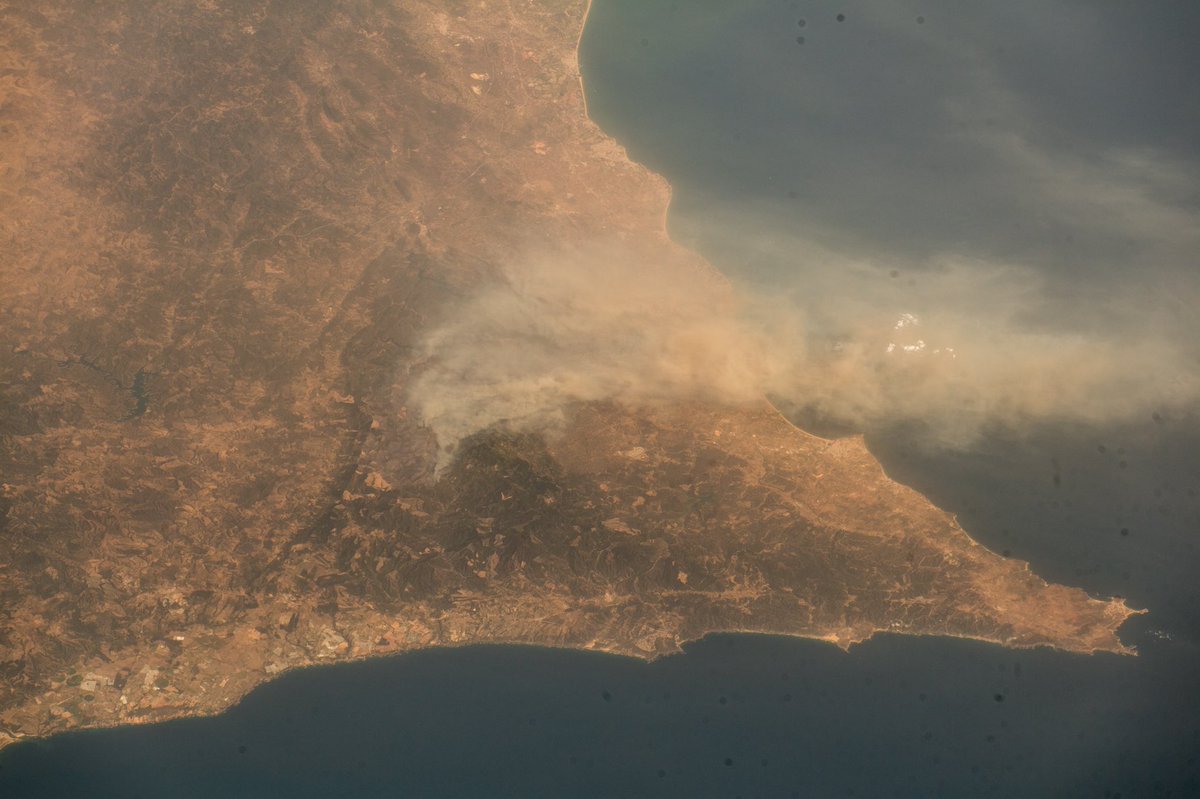
Muscat: An astronaut serving as the commander of the International Space Station has shared with the world pictures of Europe that have been taken from space... and the images are shocking, to say the least.
Vast areas of Central Europe and Germany that were previously covered with lush green forests and grasslands have now been left brown and lifeless, pointing once again to the untold impact climate change is having on our planet.
Alexander Gerst, an astronaut, geophysicist, volcanologist and explorer at the European Space Agency, who has been serving as commander of the ISS since June 6, shared his findings on social media for all the world to see.
“Just had a chance to take my first photos of dried-out Central Europe and Germany since a few weeks, and was shocked,” said Gerst, who hails from Germany. “What should have been green, is now all brown. Never seen it like this before.”
He also shared photos of Portugal online, and observed that the country was experiencing strange weather patterns.
“Dramatic weather situation today over Portugal,” he said. “Looks like a mixture of dust, sand and smoke.”
Gerst shared other photos of dangerous natural occurrences taking place, including a cyclone forming in the oceans, and the ongoing California wildfires, further worrying evidence of the impact of climate change.
“California burning,” he added. “These fires are frightening to watch, even from space. Here's a shout-out from space to all firefighters on this planet, my former colleagues. Stay safe my friends!”
2018 is set to be by far the hottest year on record, and temperatures this year have shattered previous records in terms of temperature.
In Oman, for example, the town of Quriyat recorded the highest minimum temperature in the world, posting a temperature of 42.6 degrees in June of this year, and it continued to remain that hot for nearly 51 hours.
Oman also held the record for the previous highest ‘minimum’ temperature, which was taken at Khasab Airport, in the northern governorate of Musandam, where temperatures remain high due to it being situated on the Gulf of Oman, one of the warmest bodies of water in the world, where recorded temperatures hover around 30 degrees centigrade.
Heat waves are now being recorded all over the world. On July 3, 2018, there were nearly 100 heat warnings across Eastern Canada and an estimated 80 million people in the United States received heat advisories and warnings.
In Montreal, where night-time temperatures haven’t dropped below 21 degrees, this summer’s heat wave has resulted in the deaths of 17 people. In Scotland, the town of Motherwell, just north of Glasgow, posted its hottest day on record, with temperatures of 32 degrees, as Belfast, the capital of Northern Ireland, recorded 30 degrees.
A heat wave in Karachi, Pakistan saw 65 people dead last May, while Japan’s record highest temperature led to the deaths of 119 people and the hospitalisation of thousands. South Korea saw 29 people dead, as fires in Greece (in part due to climate change) saw 91 deaths.
Quebec has recorded a total of 70 deaths due to the heat, as bushfires in California led to the deaths of eight people, with the Northeast U.S. being put on heat watch in early July. A heat wave across the UK means drought-like conditions are prevalent there as well, and most worryingly of all, forest fires in Sweden have reached as far as the Arctic Circle.